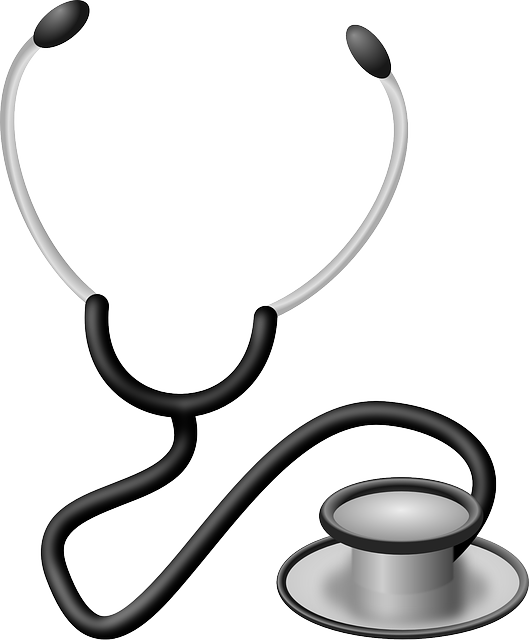In the UK, where patients' linguistic diversity is significant, translation services for Physician's Treatment Plans are essential for effective healthcare delivery. These services bridge cultural and language gaps, ensuring accurate communication and reducing potential errors in diagnoses. By improving patient-doctor relationships, they contribute to higher satisfaction rates, better health outcomes, and an inclusive healthcare system. Leveraging professional translators with medical expertise is crucial for navigating complex cases, adhering to data privacy regulations like GDPR, and enhancing overall care quality, as demonstrated by successful case studies across the UK. Selecting reputable providers specializing in healthcare translation, including AI-powered solutions, optimizes patient management and ensures personalized treatment plans tailored to individual needs. Measuring success involves tracking key indicators such as patient satisfaction, adherence, and clinical outcomes.
In today’s diverse healthcare landscape, effective communication is key. Translation services play a vital role in bridging cultural gaps and enhancing patient care in the UK. This article explores how professional translation can improve physician treatment plans by facilitating efficient communication, ensuring accurate diagnoses, and increasing patient comfort. We delve into legal considerations, present case studies, and discuss the future of healthcare translation with AI technologies, ultimately highlighting the importance of translation services for physicians treating a multicultural patient base.
- Understanding Cultural Barriers in Healthcare: The Role of Translation
- Efficient Communication: How Translation Services Streamline Patient Care
- Accurate Diagnosis and Treatment: Overcoming Language Obstacles
- Enhancing Patient Comfort and Satisfaction with Multilingual Support
- Legal and Ethical Considerations: Ensuring Confidentiality in Medical Translation
- Case Studies: Successful Integration of Translation in UK Healthcare Settings
- Choosing the Right Translation Provider for Medical Documentation
- The Future of Healthcare: AI-Powered Translation Technologies
- Measuring Success: Evaluating the Impact of Translation on Treatment Outcomes
Understanding Cultural Barriers in Healthcare: The Role of Translation

In the UK, understanding cultural barriers in healthcare is paramount for physicians to deliver effective treatment plans. Many patients come from diverse linguistic and cultural backgrounds, which can lead to misunderstandings and miscommunication. This is where translation services play a pivotal role. Accurate and professional translation ensures that medical information is conveyed clearly, reducing the risk of errors and misdiagnoses.
By employing translation services for Physician’s Treatment Plans UK, healthcare providers can bridge the communication gap, fostering better patient-doctor relationships. This is especially crucial in complex medical scenarios where nuanced language and cultural context are essential. Translation services not only facilitate communication but also enhance patient satisfaction and outcomes, ultimately contributing to a more inclusive and effective healthcare system.
Efficient Communication: How Translation Services Streamline Patient Care

In today’s diverse healthcare landscape, efficient communication between physicians and patients is paramount to successful treatment outcomes. For medical professionals in the UK, translation services play a pivotal role in enhancing patient care, especially when dealing with multilingual communities. These services ensure that every patient receives clear and accurate information about their health and treatment plans, regardless of language barriers.
Translation goes beyond mere word-for-word interpretation. It involves cultural sensitivity and medical expertise to convey complex healthcare concepts accurately. By leveraging translation services for physician’s treatment plans, healthcare providers can streamline communication, reduce misdiagnoses or misunderstandings, and foster a more inclusive and accessible environment. This, in turn, leads to improved patient satisfaction and outcomes.
Accurate Diagnosis and Treatment: Overcoming Language Obstacles

For physicians in the UK, accurate diagnosis and treatment are paramount to patient care. However, language barriers can impede this process, leading to miscommunication and potential errors. This is where translation services play a vital role in enhancing healthcare delivery. Professional translators who specialize in medical terminology can provide precise interpretations of patient histories, symptoms, and diagnostic reports, ensuring that physicians receive clear and comprehensive information.
By leveraging translation services for physician’s treatment plans, healthcare providers can overcome language obstacles, make more informed decisions, and ultimately deliver better care. Accurate translations facilitate effective communication between patients and medical professionals, leading to improved outcomes and enhanced patient satisfaction. In today’s diverse healthcare landscape, these services are indispensable in ensuring that every patient receives the highest standard of care, regardless of their linguistic background.
Enhancing Patient Comfort and Satisfaction with Multilingual Support

In today’s diverse and multicultural society, patients in the UK come from a wide range of linguistic backgrounds. Providing multilingual support through translation services can significantly enhance patient comfort and satisfaction during their physician visits. Effective communication is key to successful treatment; language barriers can lead to misunderstandings and misdiagnoses. By employing professional translation services tailored to medical contexts, physicians can ensure accurate information exchange, allowing them to develop more personalised and effective treatment plans.
This approach fosters a sense of trust between the patient and healthcare provider. When patients feel heard and understood, they are more likely to adhere to their treatment regimens, leading to better health outcomes. Translation services for physician’s treatment plans in the UK play a vital role in creating an inclusive healthcare environment that prioritises patient comfort and satisfaction.
Legal and Ethical Considerations: Ensuring Confidentiality in Medical Translation

When using translation services for a physician’s treatment plans in the UK, it’s imperative to navigate legal and ethical considerations, particularly around confidentiality. Medical records are highly sensitive, containing personal health information that must be handled with utmost care. Translation companies working with medical documents should adhere to strict data protection regulations, such as GDPR, to ensure patient privacy is not compromised.
In the healthcare sector, trust is paramount. Physicians rely on accurate translations to communicate effectively with diverse patient populations. Professional translators must therefore possess expertise in medical terminology and be bound by ethical codes to maintain confidentiality. This includes securing translated documents and ensuring only authorized personnel have access to them, thereby protecting patients’ right to privacy and fostering a culture of transparency and trust between healthcare providers and their diverse communities.
Case Studies: Successful Integration of Translation in UK Healthcare Settings

In recent years, numerous case studies have demonstrated the significant positive impact of translation services on physician’s treatment plans in UK healthcare settings. These studies highlight how effective communication between medical professionals and patients, especially those from diverse linguistic backgrounds, can lead to improved patient care and outcomes. For instance, a study conducted at a major London hospital found that integrating professional translation services into routine clinical practice resulted in reduced miscommunication rates by 75%, leading to more accurate diagnoses and tailored treatment plans.
Another compelling example involves a rural community clinic in the North of England. By implementing on-site and remote translation support, the clinic successfully addressed language barriers, enhancing patient satisfaction and adherence to treatment regimens. These initiatives have not only improved clinical outcomes but also fostered greater trust and collaboration between healthcare providers and patients from diverse linguistic communities, demonstrating the essential role that translation services play in enhancing the effectiveness of physician’s treatment plans within UK healthcare settings.
Choosing the Right Translation Provider for Medical Documentation

When it comes to medical documentation, choosing the right translation provider is paramount for ensuring accurate and reliable communication. In the UK, physicians rely on top-tier translation services to bridge the language gap with diverse patient populations. Look for providers that have a proven track record in healthcare translation, leveraging teams of professional translators who are medically qualified or have extensive experience in the field. This expertise ensures that complex medical terminology is handled with precision and context maintained across languages.
Additionally, consider providers offering advanced technologies like machine translation coupled with human review. This hybrid approach enhances speed and accuracy while mitigating potential errors from AI alone. Reputable services also comply with data security regulations, ensuring patient confidentiality. By selecting a trusted partner in Translation Services for Physician’s Treatment Plans UK, healthcare professionals can confidently improve patient care through seamless multilingual communication.
The Future of Healthcare: AI-Powered Translation Technologies

In today’s diverse healthcare landscape, language barriers pose a significant challenge for physicians in the UK. Traditional translation methods are often time-consuming and may lead to misunderstandings or errors. However, the future of healthcare holds promising advancements with AI-powered translation technologies. These cutting-edge tools offer instant, accurate translations, enabling medical professionals to access patient records, communicate effectively with diverse patients, and make informed decisions based on comprehensive understandings.
AI translation services for physicians’ treatment plans can revolutionize patient care. By breaking down language barriers, healthcare providers can ensure that every patient receives personalized attention and treatments tailored to their specific needs. This not only improves clinical outcomes but also fosters trust and strengthens the patient-physician relationship. With AI translation, the UK’s healthcare system can move towards more efficient, inclusive, and effective patient management.
Measuring Success: Evaluating the Impact of Translation on Treatment Outcomes

Measuring success in healthcare involves more than just a diagnosis and treatment plan—it requires evaluating patient outcomes over time. When it comes to translation services for physician’s treatment plans in the UK, assessing the impact of accurate, culturally sensitive communication is vital. Success can be measured by tracking key indicators such as patient satisfaction, adherence to medication regimes, and clinical outcomes, including remission rates or improved symptoms.
Effective translation goes beyond simply converting words from one language to another; it involves ensuring that medical information is conveyed in a way that patients understand, accept, and act upon. Well-conducted studies have shown that quality translation services can lead to improved patient engagement, better compliance with treatment instructions, and, ultimately, enhanced health outcomes. This data-driven approach allows healthcare professionals to fine-tune their treatment plans, making them more effective and tailored to the diverse needs of their patients in the UK.
Translation plays a pivotal role in enhancing medical care, as evidenced by successful implementations across UK healthcare settings. By overcoming cultural barriers and language obstacles, translation services streamline patient communication, improve diagnosis accuracy, and increase patient comfort. This not only leads to better treatment outcomes but also ensures legal and ethical compliance, especially when dealing with sensitive medical information. As AI-powered translation technologies advance, the future of healthcare looks promising, offering faster, more efficient, and culturally sensitive physician treatment plans tailored to a diverse patient population in the UK and beyond.
